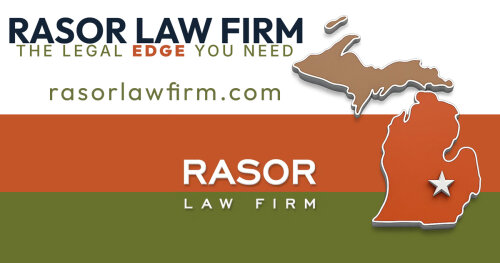Best Labor Law Lawyers in Maryland
Share your needs with us, get contacted by law firms.
Free. Takes 2 min.
Or refine your search by selecting a city:
List of the best lawyers in Maryland, United States
About Labor Law in Maryland, United States
Labor law in Maryland encompasses state and federal regulations that govern the relationship between employers and employees. These laws are designed to protect workers’ rights, ensure fair wages, prevent workplace discrimination, and regulate working conditions. Maryland labor laws cover a variety of topics, including minimum wage, overtime, workplace safety, anti-discrimination protections, family and medical leave, and wrongful termination. In addition to federal laws such as the Fair Labor Standards Act and the Family and Medical Leave Act, Maryland employers and employees must comply with state-specific rules that may offer broader protections than federal law.
Why You May Need a Lawyer
Legal issues in the workplace can be complex and stressful. You may need a labor law attorney if you face one or more of the following situations:
- Experiencing workplace discrimination or harassment based on age, race, gender, disability, religion, or other protected statuses
- Having issues with unpaid wages, overtime pay, or minimum wage violations
- Facing wrongful termination or retaliation after reporting illegal conduct or discrimination
- Needing help understanding your rights under employment contracts, severance agreements, or non-compete clauses
- Seeking information about family and medical leave, or accommodation for disabilities
- Encountering workplace safety or health violations
- Facing disciplinary actions or demotion without proper cause or procedure
A lawyer can help you understand your rights, gather evidence, negotiate with your employer, represent you in lawsuits, and help you secure fair compensation or reinstatement if your rights have been violated.
Local Laws Overview
Several Maryland-specific labor laws provide additional protections to employees. Here are some key aspects relevant to labor law in Maryland:
- Minimum Wage: Maryland’s minimum wage is generally higher than the federal minimum. As of January 2024, most employees must be paid at least $15.00 per hour, with some exceptions for small employers and specific job categories.
- Overtime: Non-exempt employees in Maryland must be paid time and a half for any hours worked over 40 in a single workweek.
- Maryland Healthy Working Families Act: Requires most employers with 15 or more employees to provide paid sick and safe leave.
- Workplace Discrimination: The Maryland Fair Employment Practices Act prohibits discrimination based on protected characteristics such as race, color, religion, sex, age, national origin, marital status, sexual orientation, gender identity, genetic information, or disability.
- Employment at-will: While Maryland recognizes at-will employment, employers cannot fire employees for illegal reasons (such as retaliation, discrimination, or for exercising a legal right).
- Child Labor Laws: There are strict limits on the hours minors can work and the types of jobs they can perform.
- Family and Medical Leave: Employees may qualify for leave under both the federal FMLA and state-specific laws in certain circumstances.
Local (county or city) ordinances may also establish labor standards that further supplement or expand these state laws.
Frequently Asked Questions
What is the current minimum wage in Maryland?
As of January 2024, Maryland’s statewide minimum wage is $15.00 per hour for most employers, with some variations based on employer size and occupation.
If I work overtime, how should I be compensated?
Non-exempt employees in Maryland are entitled to one and one-half times their regular rate of pay for all hours worked over 40 in a workweek. Some positions, such as certain farm workers or executives, may be exempt.
What are my rights if I experience workplace discrimination?
You have the right to file a complaint with the Maryland Commission on Civil Rights or the Equal Employment Opportunity Commission if you believe you have been discriminated against based on race, gender, age, disability, or another protected class.
Does Maryland require employers to provide paid sick leave?
Yes, under the Maryland Healthy Working Families Act, most employers with 15 or more employees must provide paid sick and safe leave. Smaller employers must provide unpaid leave.
Am I protected if I blow the whistle on illegal activity at work?
Maryland law protects employees who report illegal workplace activities (whistleblowing) from retaliation, including firing or demotion.
Can I be fired without warning in Maryland?
Maryland is an at-will employment state, meaning an employer can terminate employment for any reason, or no reason, unless it is illegal, such as firing due to discrimination or retaliation for protected activities.
Are there restrictions on employing minors in Maryland?
Yes, Maryland has strict child labor laws limiting hours and types of work minors can perform. Work permits are required for employees under age 18.
How do I file a wage claim if I am not paid properly?
You can file a wage claim with the Maryland Department of Labor’s Employment Standards Service, which investigates claims for unpaid wages, overtime, and minimum wage violations.
What is considered a hostile work environment?
A hostile work environment exists when workplace behavior (such as harassment or discrimination) is so severe or pervasive that it creates an intimidating, offensive, or abusive atmosphere. This can be grounds for legal action.
Are non-compete agreements enforceable in Maryland?
Maryland law limits the enforceability of non-compete agreements. As of recent updates, employers cannot require non-compete or conflict of interest agreements from employees earning equal to or less than $19.88 per hour or $41,350 per year.
Additional Resources
For more information and assistance, consider reaching out to the following resources:
- Maryland Department of Labor - Employment Standards Service
- Maryland Commission on Civil Rights
- Equal Employment Opportunity Commission (EEOC)
- Occupational Safety and Health Administration (OSHA)
- Maryland Volunteer Lawyers Service
- Local bar associations, which often offer referral services
Next Steps
If you believe your labor rights have been violated or you are facing a difficult situation at work, take the following steps:
- Document incidents, conversations, and keep records of paystubs or correspondence related to your issue
- Contact your employer’s human resources department if appropriate
- Review your employee handbook or company policies
- Reach out to one of the state or federal agencies listed above to file a complaint or learn more about your rights
- Consult with a qualified labor law attorney in Maryland who can evaluate your case and advise you on the best course of action
Taking prompt action is important, as some labor law claims have deadlines known as statutes of limitations. An attorney can help ensure your rights are protected throughout the process.
Lawzana helps you find the best lawyers and law firms in Maryland through a curated and pre-screened list of qualified legal professionals. Our platform offers rankings and detailed profiles of attorneys and law firms, allowing you to compare based on practice areas, including Labor Law, experience, and client feedback.
Each profile includes a description of the firm's areas of practice, client reviews, team members and partners, year of establishment, spoken languages, office locations, contact information, social media presence, and any published articles or resources. Most firms on our platform speak English and are experienced in both local and international legal matters.
Get a quote from top-rated law firms in Maryland, United States — quickly, securely, and without unnecessary hassle.
Disclaimer:
The information provided on this page is for general informational purposes only and does not constitute legal advice. While we strive to ensure the accuracy and relevance of the content, legal information may change over time, and interpretations of the law can vary. You should always consult with a qualified legal professional for advice specific to your situation.
We disclaim all liability for actions taken or not taken based on the content of this page. If you believe any information is incorrect or outdated, please contact us, and we will review and update it where appropriate.
Browse labor law law firms by city in Maryland
Refine your search by selecting a city.











